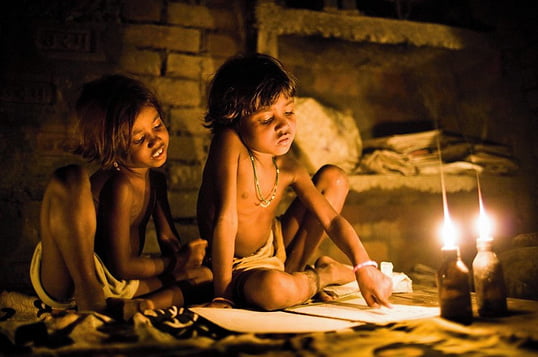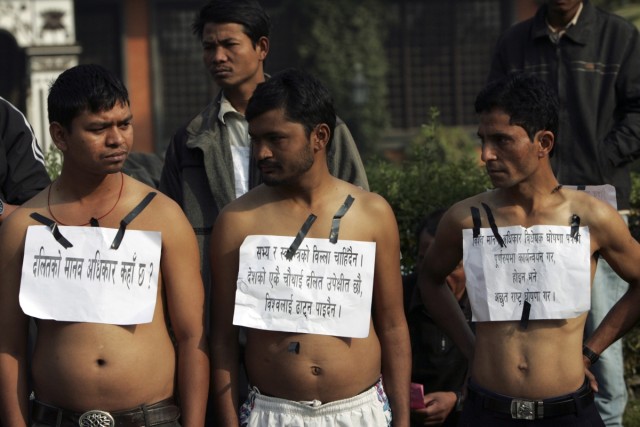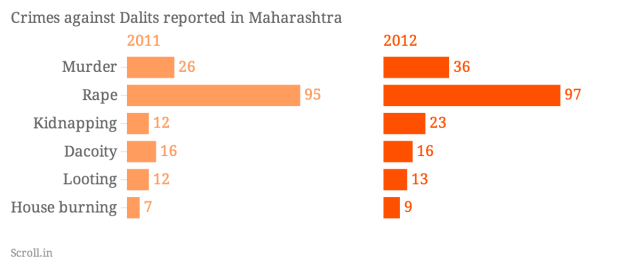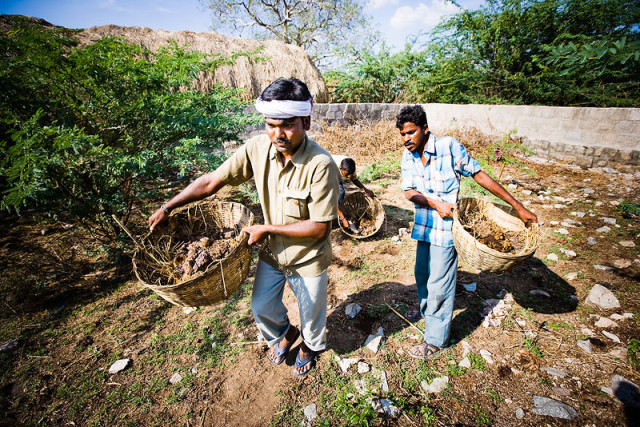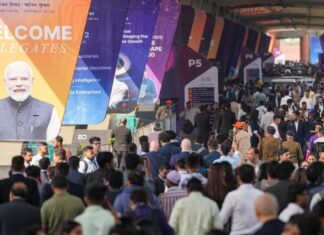“There is one thing which Hinduism has never been able to do – namely to adjust itself to absorb the Untouchables or to remove the bar of Untouchability.”
– B.R. Ambedkar
Does the phrase ‘Holy’ Cow and ‘Unholy’ Dalit sound familiar? Outlook India in the year 2002 published a brilliant article which compared the condition and status of cows (the holy subjects) in India to the population of the Dalits or usually called ‘Untouchables’ in India. Guess, what would have been the result?
Well, More Cows >> Dalits
Therefore, Rights of cows >> Rights of the Dalits!
Even though the situation might seem to be very different and befitting on the outer surface, the reality on the inner surface is still the same, if not very different from the earlier one. The acceptance has to come from within rather than it being something superficial, something which only holds true since others believe that there should be equality- Hence, there was equality! That shit does not happen in real life. India being a country which upholds the social hierarchy based on one’s birth and treats the Dalits as outcasts- accounts to 167-68 (approx.) million people.
A recent case of some ‘upper’ caste men urinating in a Dalit youth’s mouth came into light only because the media highlighted it and not because any action was taken against the guilty. The incident took place at a temple festival at Karuvanur in the Krishnagiri district of Tamil Nadu in early March but only came to be known to the rest of the world on March 18, 2015. The 20 year old, M Aravindhan, who was visiting his native village to participate in a temple festival, stated how he was brutally beaten up along with his cousin after being dragged to a nearby toilet. He added, “I went to the temple with my relative R Dinesh. Some upper caste Hindus used filthy words against us when they saw us.” Aravindhan went on to explain how they were dragged to the toilet and beaten. He alleged how when he fell on the ground and asked for water in an injured state, the men urinated in his mouth.
All these practices do not sound new and point out at our inability and insensitivity in general since nothing much has changed even though we talk about equality by giving reservations to the people belonging to different groups. The issue of reservation is yet again debatable in the larger scenario.
Aravindhan was later admitted to the Dharampuri Government Medical College after having suffered multiple injuries. He later lodged a complaint in the nearby Kallavi police station but accused the police of not having registered a case under the Scheduled Tribe/Scheduled Tribe Atrocities Prevention Act but simply filing the complaint under the assault case section against the ‘unknown’ people.
The discrimination against the Dalits is not new and has been practiced since time immemorial. Earlier the division of an individual broadly into the four Varna’s- Brahmins, Kshatriyas, Vaishyas and the Shudras was decided on the basis of one’s work. However, later the practice became so prominent that one’s birth decided one’s position in the society. The Varna system further extends to the ati shudras- considered to be the lowest in the system. People belonging to the higher Varna often take privilege in being born in the higher Varna because of their good behaviour in the past life whereas the Shudras and the ati shudras are supposed to have committed sins in the past.
People since ages have been conditioned to treat the Dalits as someone they can easily exploit for labour, for meagre or no incomes. Earlier the Dalits had to ensure that they maintained a certain level of distance from the higher caste people, not cover their upper bodies as a sign of respect, not enter the temples, not use the common wells, stay in the outskirts of an area, carry the faeces from the upper class households to the outer areas on their heads; the situation seems to be changing in the present scenario. However, there the rate of change is very slow. Satyamev Jayate in its initiative to highlight the misery of the Dalits focused on the issue of manual scavenging and how Dalits are forced to do so since they are not considered to be capable enough to be employed for any other job. The Supreme Court of India has ordered all the states to ban manual scavenging, irrespective of one’s social caste or class group.
Manual Scavenging
Times like these definitely call for political attention and the same happened! S Ravi, the District Secretary of the Tamil Nadu Kuravan Pazhankudiina Makkal Sangam (TNKPMS) stated how he asked the police to register the case under the Scheduled Tribe/Scheduled Tribe Atrocities Prevention Act. He stated, “Police officials told me that they would extort money from the non-Dalits in return for not registering a case against them. So, we have decided to take up this issue to the court.”
The police claims to be working on the case and further investigating it. The official statement released was- “We will alter the case once we confirm whether the Dalit youth was harassed or not.”
There have been cases of the lower caste Hindus wanting to convert to Islam since they were not allowed entry inside the temples. “What is the point of being a Hindu when I cannot enter a temple?” a source said. How many of us can actually answer this question honestly and in true faith? We are not unaware of the treatment meted out to the lower caste groups in the society but how many of us can actually raise our voice towards it or try and do something about it. It’s time to practice the equality we preach and talk about because only then will we be able to dream about a united nation in all aspects.
The problem is not a simple one to solve since it is deeply ingrained in one’s mind and to overcome the years of conditioning might just examine the strength of will an individual has and how willing one is to be a part of a change in the society and towards its development.
Let us learn to respect people irrespective of their caste groups or beliefs- we’re human beings at the end of the day and the least we can do is to not be trapped in the imposed and upheld beliefs which have been practiced so far in the society.



























